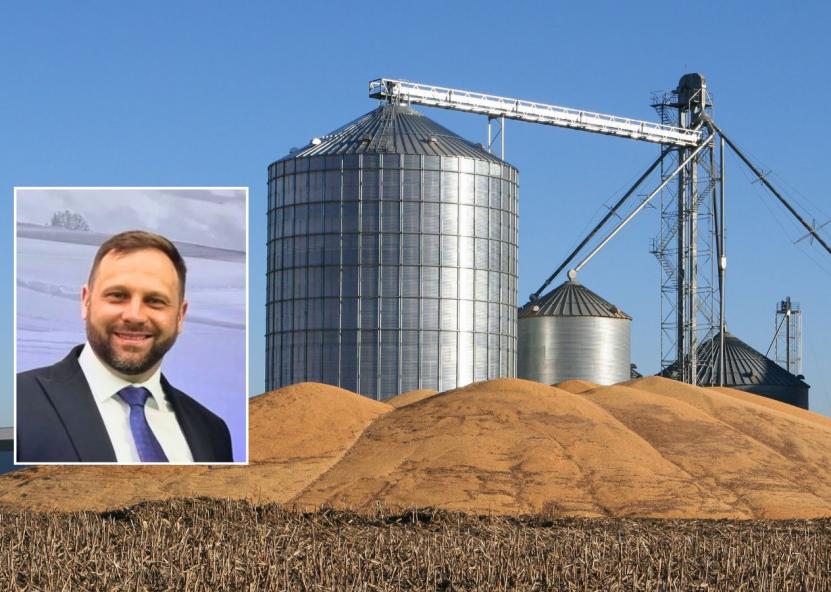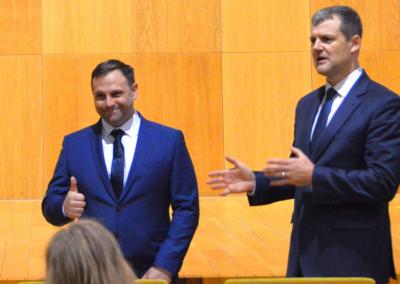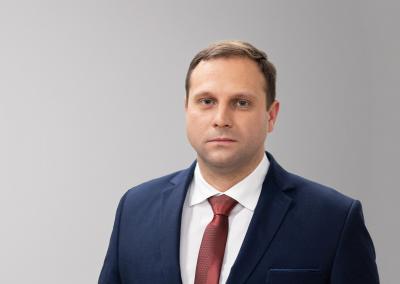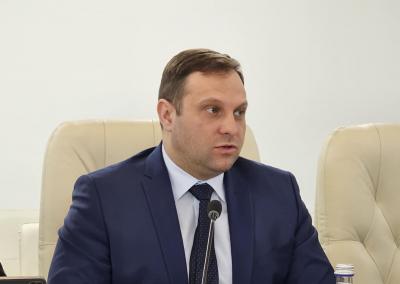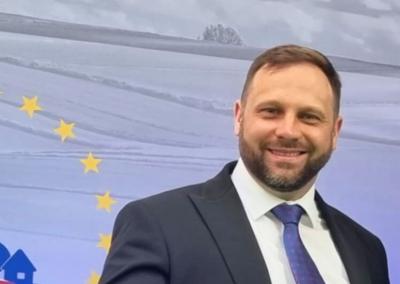I. Hofman will seek to allow farmers to reduce their tax burden by becoming legal persons
The tax changes could be very costly for farmers, says Agriculture Minister Ignas Hofmanas. He says he will therefore push for farmers to become legal entities to reduce their tax burden.
„We may review the current regime, change it and encourage farmers to become legal entities. Treating and taxing them as legal persons would be the right thing to do. However, this is a very complex issue and will be determined by a joint decision of the Government," Mr Hofman told reporters earlier this week.
„We will discuss this issue with the MPs, with the farming community and we will look for the most acceptable status for them. They do not have any similarities with people who have an employment contract. It is much more like a company with a production activity," reasoned the Minister of Agriculture.
However, he noted that not every farmer would necessarily need to, or would find it worthwhile to, become a legal entity, re-registering as a private limited company (PLC) or a small partnership (LP).
„Small farmers may not even reach a level of income that would increase their GPT and it would not be worth changing their status. Another important consideration is whether the farm is VAT registered. Some people farm to add a little to their existing income or to meet personal food needs," said Mr Hofman.
However, most of the farmers who earn a living are self-employed and their income is currently subject to a maximum of 15% personal income tax (PIT). However, if the amendments currently pending in the Seimas were to come into force, their activities would be taxed in the same way as normal employment.
20%. The GPT rate would be levied on annual income up to 36 average salaries (average wages, next year – €82.9 thousand), 25% – from 36 to 60 average annual wages (average wages, next year – €82.9 thousand), – 32% – from 60 average wages (next year – more than €138.2 thousand).
According to the Minister, the tax changes could affect roughly 1,000 professional farms.„The problem for farmers is not only the GPT they pay on their taxable income, but also the „Sodra“ tax on their profits. They have to give almost half of their earnings to taxes, which is not normal," says I. Hofmanas.
He said that farmers working as legal entities would pay more proportionate taxes and would be able to carry out their activities with much more certainty.
„If a farmer operated as a legal entity, he would pay himself a salary, and the tax paid would depend on the salary he received. Farmers also do not have the refinancing options that other entities have,– argues the head of the MAF.
„They are particularly disadvantaged by the fact that they risk not only the farm's assets, but also their personal assets. In case of failure, the farmer may even lose his home, – argues I. Hofmanas.
On Thursday, amendments to the non-residential property tax (NPRT) passed the first vote in the Seimas, on Tuesday - a 1% point increase in corporate income tax, changes to the GPT by introducing three progressive rates in the range of 20-32% for the total amount of income, and the introduction of a tax on "sugar" or an excise duty on sugary drinks.
There will also be consideration of scrapping the value added tax (VAT) relief on heating, hot water and firewood, which would be set at 21% instead of the current 9%.
In addition, the introduction of a non-life insurance tax will be considered – 10% would be levied on most insurance premiums, with the proceeds of this so-called Security Contribution earmarked for defence.
The Ministry of Finance estimates that if all the tax proposals are adopted, they would add €248.7 million to state and municipal budgets next year and €624.6 million in 2027.
Some of the additional revenue should be earmarked to finance national defence, which is expected to raise €306 million next year and €523.6 million in 2027.



































































































